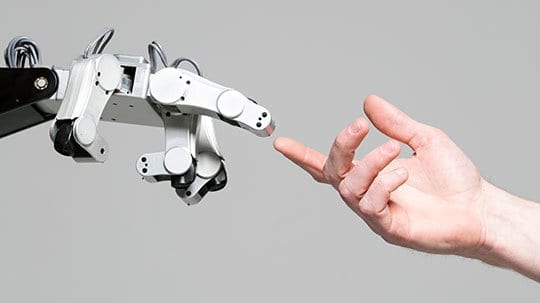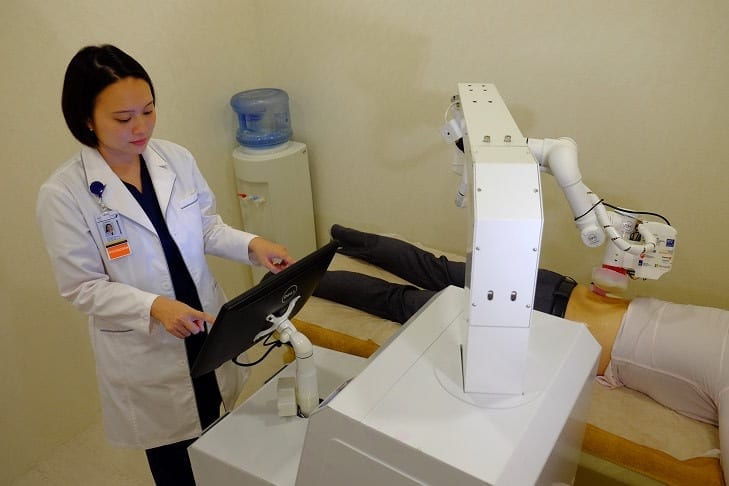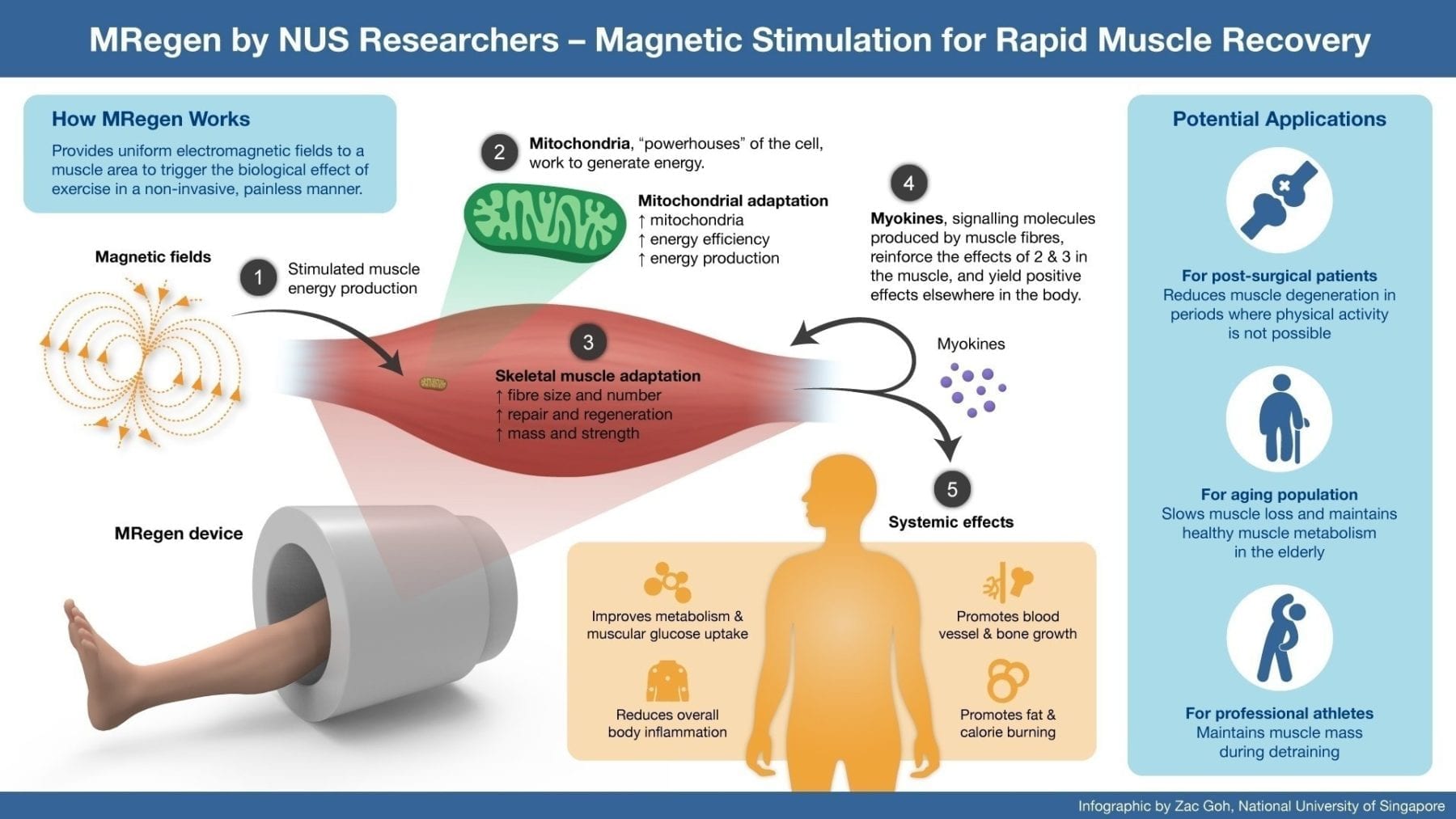
In Europe, people are more reserved regarding robots than they were five years ago. This is shown in a new study published by scientists from Linz and Würzburg.
Robots performing in surgeries, robots in automobile production, and robots in caregiving. In some areas, the machines are already well-established, in others they are on the rise. The psychologists Timo Gnambs from Johannes Kepler Universität Linz (Austria) and Markus Appel from Julius-Maximilians-Universität Würzburg (Germany) believe that we are at the brink of a robotic era.
More and more robots in everyday life. But how do people feel about robots? Apparently increasingly uncomfortable, as the two professors show in the journal “Computers in Human Behavior”: according to their cross-European data analysis, robots were evaluated more negatively in 2017 than five years before.
Increasing skepticism about robots at the workplace
Especially the skepticism about robots at the workplace has grown. This may be due to the fact that the topic of job losses due to robotic systems has been increasingly discussed in the public, the researchers say. However, the use of robots at the workplace is still rated more positively than the use in surgeries or autonomous cars.
Gnambs and Appel analyzed the 2012, 2014 and 2017 Eurobarometer data. This is a representative survey on current topics; their findings are based on 80,396 citizens from 27 European countries.
How interviews were conducted
In the interviews, the respondents first saw a general description of robots as machines that can assist people with everyday activities, such as cleaning robots. Or as machines that are working in environments which are too dangerous for humans, such as rescue missions. When the interviewees subsequently had to judge robots, the results were still relatively positive.
Another picture emerged as soon as respondents were confronted with specific applications, such as surgeries, caretaking robots or self-driving cars. Then they evaluated robots more negatively.
It seems that Europeans are relatively positive about robots as long as they have a more or less theoretical concept in mind. They are increasingly critically when the robot is specified and personal interactions appear imminent.
The study gives some notable insights. It shows that men tend to see robots as positively, while women are more skeptical. Blue-collar workers have more negative attitudes towards robots than people with office jobs. And in countries with a high proportion of older people, the attitudes towards robots are more positive.
Warning signal for business and politics
Taken together, the Linz and Würzburg scientists identified the trend that skepticism towards robots in Europe has grown between 2012 and 2017. This should be a warning sign for politics and business – and a motivation to counteract reasonable fears about our robotic future. Not least, negative attitudes towards new technologies may be a sign that these technologies will not be accepted later on and will not prevail on the market.
Learn more: Increasing Skepticism Against Robots
The Latest on: Humans trusting robots
[google_news title=”” keyword=”humans trusting robots” num_posts=”10″ blurb_length=”0″ show_thumb=”left”]
via Google News
The Latest on: Humans trusting robots
- Scientists Built a Working Human Brain Cell Out of Salt and Wateron April 30, 2024 at 6:00 am
Scientists have long mimicked human synapses using conventional solid materials, but new research attempts to recreate using extremely basic ingredients: water and salt. By recreating human synapses ...
- Robots with weapons? Bill would make that illegal in Massachusettson April 25, 2024 at 3:13 pm
The robot dog, created by Boston ... explaining that the company’s aim is to create public trust with robotic devices in anticipation of them being in people’s homes. Hannah Rossi, a field ...
- Enter Robots: Are We Ready?on April 25, 2024 at 11:09 am
Will we trust our AI-enhanced humanoid robots to care for loved ones? How will we respond to humanoid robots: as valued helpers or as servants? Would humans resent these humanoid robotic ...
- Robot uses AI to mimic human facial expressionson April 25, 2024 at 6:24 am
A robot capable of mimicking human facial expressions has been developed by engineers at Columbia University in the US.
- This robot can predict a smile before it happenson April 24, 2024 at 11:17 am
STORY: This AI-integrated robotic face can predict a smile before it happens.It's called Emo and it can anticipate and mimic human facial expressions.Engineers at Columbia University’s Creative ...
- Worry your friends with this $9,420 flamethrower robot dogon April 24, 2024 at 4:58 am
Throwflame, which is apparently the oldest flamethrower manufacturer in the US, unveiled its imaginatively-named Thermonator in 2023. It joins the list of robotic quadrupeds that have ...
- The Mammotion Luba 2 Is a Fantastic (If Expensive) Robot Lawn Moweron April 23, 2024 at 8:00 am
The Mammotion Luba 2 robot lawn mower is a great product. It mowed with accuracy and consistency, rarely deterred by irregularities like dips, hills, holes or obstacles.
- At Kernel, your veggie burger will be served by a roboton April 18, 2024 at 1:00 pm
In many ways, Kernel resembles other restaurants catering to office workers — it’s a vegan fast-casual joint sitting in an unassuming block of Manhattan, nestled between outposts of Paris Baguette and ...
- Behind 'world's most advanced' humanoid robot in UK - multilingual, facial expressions and 'threat'on April 17, 2024 at 7:08 am
As a human-esque robot built with artificial intelligence, called Ameca, is set to be showcased around schools in Scotland, the Mirror takes a look into its lifelike characteristics and future use ...
- 'World's most advanced' humanoid robot heads to Scotland: Ameca can mimic human speech and facial expression with eerie precision - and will be showcased to 'demystify complex ...on April 17, 2024 at 12:18 am
The robot has embedded microphones, cameras, facial recognition software and articulated motorised components. The National Robotarium hopes to break down barriers and build trust between humans ...
via Bing News










